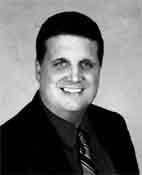 | Dr.Glenn Fortmayer is Superintendent of USD 247 Southeast. He has been a superintendent for four years and administrator for 15 of 23 years in education. He is working with Southeast on initiatives including: expanding student learning opportunities, technology integration, and increasing instruction that authentically engages students every class period of every day with an emphasis on project based learning. For more information call 620-457-8350.
|
Education Issues
2012-06-21 08:19:16
Kansas school budgets and the new tax reform law
Q: How are schools going to fare financially under the new Kansas tax laws just passed?
A: Nobody has a crystal ball. There are two main beliefs that exist. The Governor and tax reform law supporters believe that tax cuts will generate enough business, jobs, and bring enough taxpayers to Kansas to generate enough money that tax cuts will not cause any deficits in the state budget. Opponents don’t believe that growth from tax cuts will be big enough and come fast enough to offset deficits. The deficits will require cuts to schools in the coming years. Schools make up half the school budget. Thus, deficits would likely be made up by cutting school finances.
Next school year, schools will benefit from the new tax law as $58 per student (increased to $3,838 annually) has been added to school budgets. This only makes up about 1/7th of the cuts since 2008. What happens in each year after next is what scares school boards and officials.
The governor’s office recently tried to calm initial misconceptions and clarified that the $2-3 billion state deficit was cumulative over five years versus one year. This translates to about $30 million in cuts to the Topeka district over five years. Prorating that figure to Crawford County schools, our schools could lose annually for five years: Pittsburg $1.1 Million, Girard $472,000, Cherokee $368,000 and Northeast $360,000 if cuts are applied to balance the state budget as has been done in recent years.
Many legislators expect school districts to make up for shortfalls by raising local taxes and using their cash reserves. The problems with those theories are that SE Kansas districts don’t carry huge balances and that solution would be a very short-term one, if possible at all. Many districts are also already at the maximum local tax rate or close to it.
The tax reform law has made the financial future for Kansas schools a precarious one. One columnist referred to the law as a giant roll of the dice. If it works it will be one of the greatest economic feats in history. If it fails it will cause almost catastrophic cuts within schools. School boards are faced with having to decide how to cope with this financial uncertainty. Do they cut in anticipation of the losses to come and build a savings? Can they afford to cut anymore now anyway? Do they freeze expenditures until they know what the future entails? Do they invest in their students and staff in order to retain or improve staff and programs to meet the new additional challenges and mandates districts face and hope they can field the cuts later? Do they go for broke and hope that the state finance plan works or that, legislators adjust taxes quickly if shortfalls occur?
It has never been more important for voters to communicate that legislators must prioritize funding our schools so our students remain in the top ten states educationally. Students deserve more programs, tools, and high quality staff to compete in today’s world. Cutting schools hurts the future quality of life of our kids.
Interested students, parents, and patrons should contact their local districts for more information.


